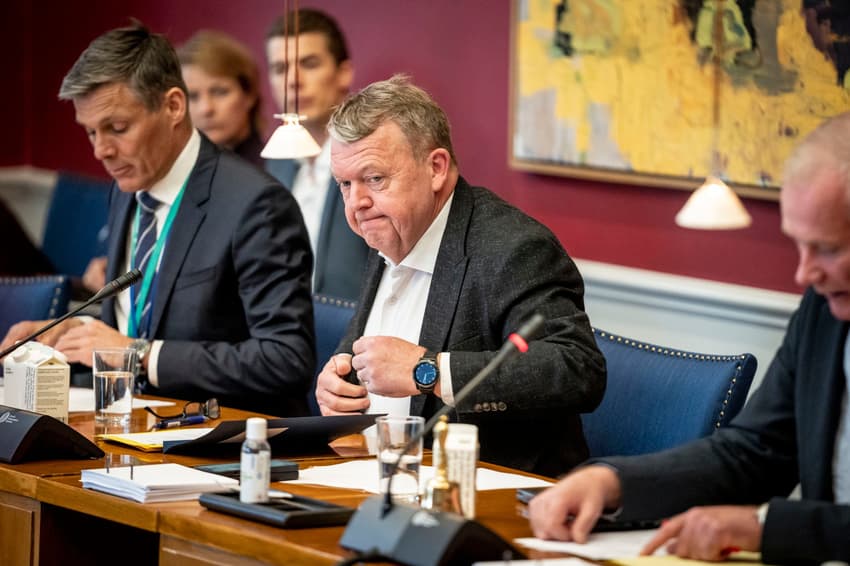Danish government split over repatriation of women and children from Syria

Only one of the three parties in Denmark’s coalition government has stated it wants to repatriate women with national connections to Denmark from Kurdish-run prison camps in Syria.
The Moderate party, one of the junior parties in the coalition, wants Danish children to be repatriated from the al-Roj prison camp in northern Syria, even if it means their mothers are evacuated with them.
The other two parties, the Social Democrats and Liberals (Venstre), still oppose bringing the women back to Denmark.
The two latter parties have stated that they only want to evacuate the children and not the mothers, who are in the camps because they have been sympathisers of the Islamic State (Isis) terror group or spouses of Isis militants.
As such, the government is split over the question of whether to retrieve the five children and three mothers from the camp, where they have now been marooned for several years.
Human rights organisations have in the past expressed concerns over the conditions at the prison camps and Denmark has faced criticism for not evacuating children there who have connections to Denmark.
READ ALSO:
- Denmark slammed by UN expert over children in Syrian camps (2021)
- Denmark to evacuate dual national from Syrian camp in exception to own policy (2021)
- Organisation sues Denmark for failure to evacuate children from Syrian camps (2021)
Current government policy does not evacuate children from the two camps without their mothers and will not evacuate mothers if their Danish citizenship has been revoked.
A recent headline case saw a mother from the camp win an appeal against a Danish immigration ministry decision to revoke her citizenship, meaning she now has the right to be evacuated. She was expected to be prosecuted by Denmark under terrorism laws on her return to the country.
Denmark’s Scandinavian neighbour Norway on Wednesday repatriated two sisters who went to Syria as teenagers as well as their three children, citing abysmal conditions in the camp where they were housed.
Foreign Minister Lars Løkke Rasmussen, leader of the Moderate party, said at a parliamentary committee hearing on Wednesday that the government will state its agreed position on the issue “soon”, news wire Ritzau reports.
“The government will make a decision on the government’s position on the basis of the updated government policy position. And I expect we will do that soon,” he said.
Rasmussen said in January that the government had asked the relevant authorities to provide up-to-date information related to the Danish children who remain in the camps.
That information is expected to form the “policy position” (beslutningsgrundlag) referred to by Rasmussen in his committee comments.
Comments
See Also
The Moderate party, one of the junior parties in the coalition, wants Danish children to be repatriated from the al-Roj prison camp in northern Syria, even if it means their mothers are evacuated with them.
The other two parties, the Social Democrats and Liberals (Venstre), still oppose bringing the women back to Denmark.
The two latter parties have stated that they only want to evacuate the children and not the mothers, who are in the camps because they have been sympathisers of the Islamic State (Isis) terror group or spouses of Isis militants.
As such, the government is split over the question of whether to retrieve the five children and three mothers from the camp, where they have now been marooned for several years.
Human rights organisations have in the past expressed concerns over the conditions at the prison camps and Denmark has faced criticism for not evacuating children there who have connections to Denmark.
READ ALSO:
- Denmark slammed by UN expert over children in Syrian camps (2021)
- Denmark to evacuate dual national from Syrian camp in exception to own policy (2021)
- Organisation sues Denmark for failure to evacuate children from Syrian camps (2021)
Current government policy does not evacuate children from the two camps without their mothers and will not evacuate mothers if their Danish citizenship has been revoked.
A recent headline case saw a mother from the camp win an appeal against a Danish immigration ministry decision to revoke her citizenship, meaning she now has the right to be evacuated. She was expected to be prosecuted by Denmark under terrorism laws on her return to the country.
Denmark’s Scandinavian neighbour Norway on Wednesday repatriated two sisters who went to Syria as teenagers as well as their three children, citing abysmal conditions in the camp where they were housed.
Foreign Minister Lars Løkke Rasmussen, leader of the Moderate party, said at a parliamentary committee hearing on Wednesday that the government will state its agreed position on the issue “soon”, news wire Ritzau reports.
“The government will make a decision on the government’s position on the basis of the updated government policy position. And I expect we will do that soon,” he said.
Rasmussen said in January that the government had asked the relevant authorities to provide up-to-date information related to the Danish children who remain in the camps.
That information is expected to form the “policy position” (beslutningsgrundlag) referred to by Rasmussen in his committee comments.
Join the conversation in our comments section below. Share your own views and experience and if you have a question or suggestion for our journalists then email us at [email protected].
Please keep comments civil, constructive and on topic – and make sure to read our terms of use before getting involved.
Please log in here to leave a comment.